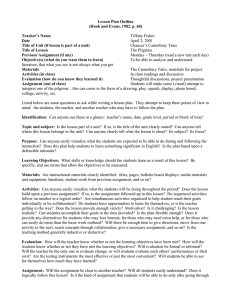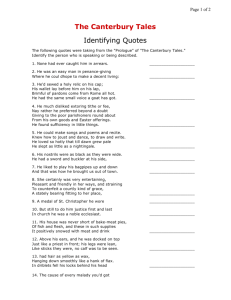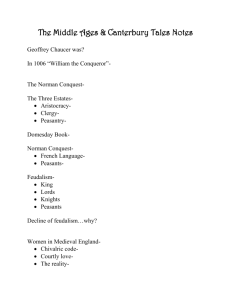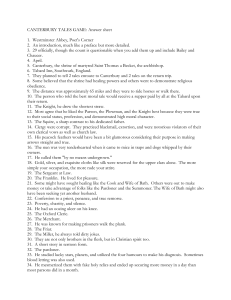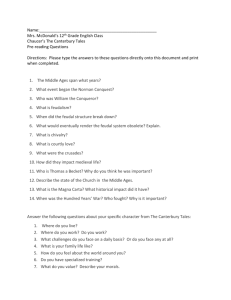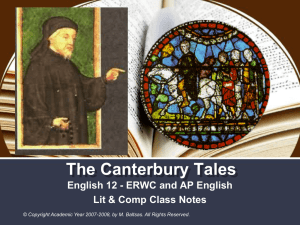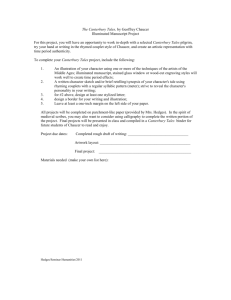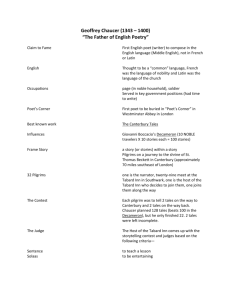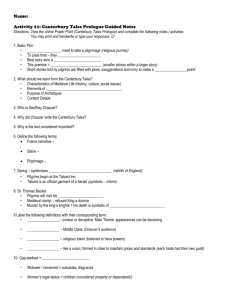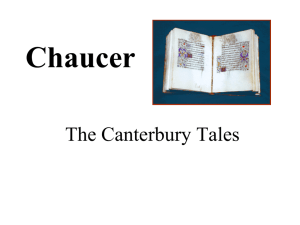The Canterbury Tales Test Review
advertisement
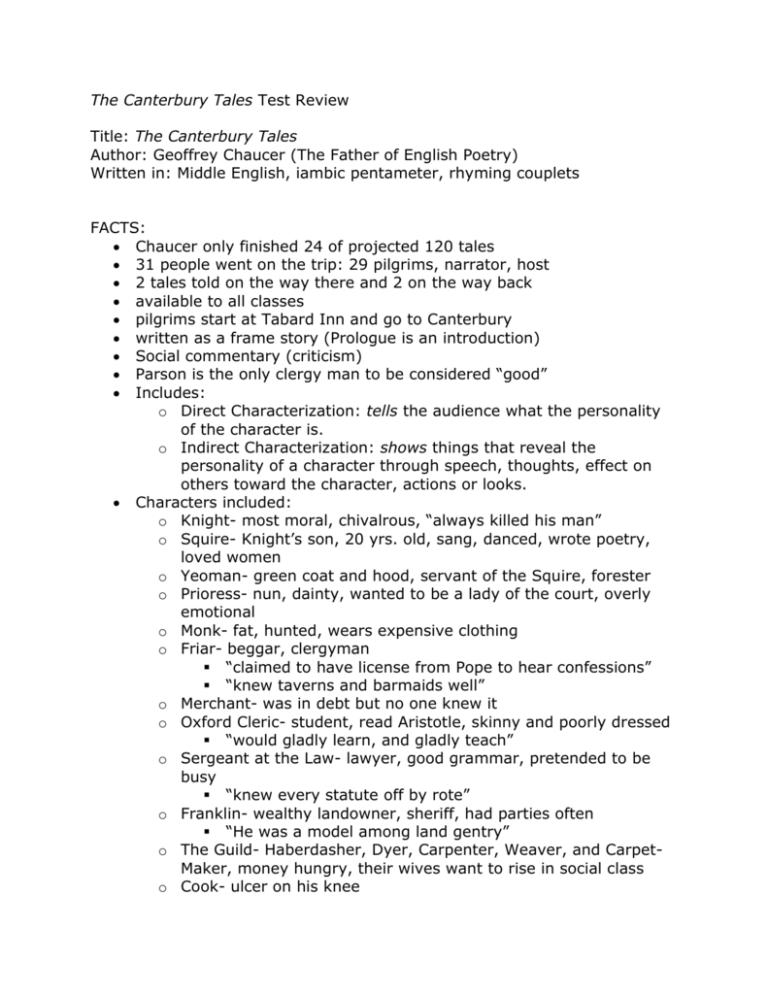
The Canterbury Tales Test Review Title: The Canterbury Tales Author: Geoffrey Chaucer (The Father of English Poetry) Written in: Middle English, iambic pentameter, rhyming couplets FACTS: Chaucer only finished 24 of projected 120 tales 31 people went on the trip: 29 pilgrims, narrator, host 2 tales told on the way there and 2 on the way back available to all classes pilgrims start at Tabard Inn and go to Canterbury written as a frame story (Prologue is an introduction) Social commentary (criticism) Parson is the only clergy man to be considered “good” Includes: o Direct Characterization: tells the audience what the personality of the character is. o Indirect Characterization: shows things that reveal the personality of a character through speech, thoughts, effect on others toward the character, actions or looks. Characters included: o Knight- most moral, chivalrous, “always killed his man” o Squire- Knight’s son, 20 yrs. old, sang, danced, wrote poetry, loved women o Yeoman- green coat and hood, servant of the Squire, forester o Prioress- nun, dainty, wanted to be a lady of the court, overly emotional o Monk- fat, hunted, wears expensive clothing o Friar- beggar, clergyman “claimed to have license from Pope to hear confessions” “knew taverns and barmaids well” o Merchant- was in debt but no one knew it o Oxford Cleric- student, read Aristotle, skinny and poorly dressed “would gladly learn, and gladly teach” o Sergeant at the Law- lawyer, good grammar, pretended to be busy “knew every statute off by rote” o Franklin- wealthy landowner, sheriff, had parties often “He was a model among land gentry” o The Guild- Haberdasher, Dyer, Carpenter, Weaver, and CarpetMaker, money hungry, their wives want to rise in social class o Cook- ulcer on his knee “could distinguish London ale by flavor” o Skipper- commander of a vessel (Maudelayne), ruthless to prisoners, dishonest “nicer rules of conscience he ignored” o Doctor- grounded in astronomy, did not read the bible “All his apothecaries in a tribe…each made money from the other’s guile” “special love of gold” four humors: hot and moist, hot and dry, cold and moist, cold and dry o Wife of Bath- red clothing, gap-teeth (symbolizes promiscuity), 5 husbands, large hips, partially deaf, too confident “knew the remedies for love’s mischances” o Parson- poor, very religious, devout, served the poor, Shepard that practiced what he preached “if gold shall rust, what shall iron do?” o Plowman- parson’s brother, honest hardworking, helped poor, paid his tithes (unlike his brother) o Miller- big fellow, strong, red beard (fox, sow), hairy wart on his nose, told filthy tavern stories “stole” grain with his “thumb of gold” o Manciple- buyer of food, illiterate but wise, got the best deals at the market o Reeve- manager of manor, carpenter, made bargains “feared like the plague he was” o Summoner- pimpled face, garlic smell, spoke in Latin when drunk, bribed people and threatened excommunication “knew their secrets” “children were afraid…” o Pardoner- with Summoner, sells indulgences, yellow hair, compared to a gelding, carried (fake?) relics “rat’s tail” (simile) sang “merrily and loud” o Narrator- reports every detail of the stories will speak “plainly and honestly” of all the pilgrims o Host- hospitable, host of Tabard Inn, comes up with the taletelling contest (winner gets a dinner paid by all), judge of the tales, goes on the pilgrimage too “man who draws shortest straw shall start” winner tells tale of “good morality and “general pleasure” Allusion- an expression designed to call something to mind without mentioning it explicitly; an indirect or passing reference Simile- a comparison between two seemingly unlike things using like or as
